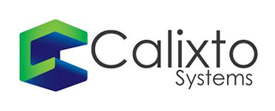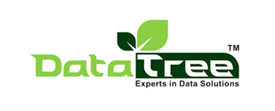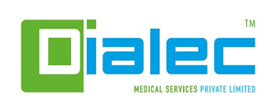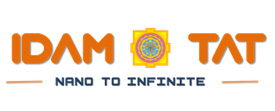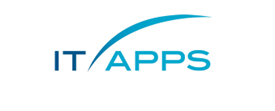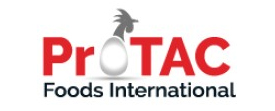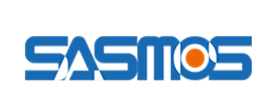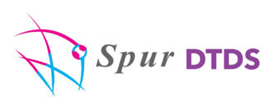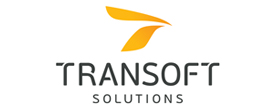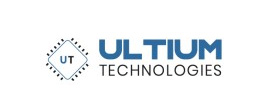Charitable & Religious Trust Registration Services
Register your trust under Sections 12A and 80G to avail tax exemptions and attract donations. We manage the documentation and filing process for smooth approval.

India, a nation that is deeply rooted in traditions of philanthropy and service, is home to over 3.1 million non-governmental organisations (NGOs), and from these many NGOs operate as charitable and religious trusts. These trusts play an important role in bridging gaps in education, healthcare, disaster relief, and community development. And to maximise their impact and gain financial sustainability, NGOs need to obtain 12A and 80G registrations.
The 12A registration provides you with income tax exemptions for NGOs and trusts like yours and also enables them to channel their resources into their missions without the burden of tax liabilities. Meanwhile, 80G certification allows donors to claim deductions on their contributions, building a culture of giving and strengthening donor trust. In a country where over ₹16,000 crores in donations are made annually, having these registrations can bring in credibility and attract larger funding opportunities.
Even though you can get these benefits, understanding the legal and procedural details for obtaining these registrations can be challenging. Compliance with the Income Tax Act, of 1961, requires careful documentation, strictly following the guidelines, and timely submissions. Trusts that fail to register under 12A or 80G not only lose these benefits but may also struggle with donor retention and operational efficiency.
Why Choose Benchmark
With our deep expertise and hands-on experience, we ensure an easy and hassle-free process for securing your 12A and 80G certifications.
Here is what sets us apart:
- Expertise in handling both simple and complex registration cases.
- Custom solutions based on the specific needs of your trust or organisation.
- Prompt and accurate preparation of documents and applications.
- Proactive follow-ups with regulatory authorities to avoid delays.
- Transparent process with regular updates at every stage.
- Proven track record of successful registrations across sectors.
- Dedicated support for post-registration compliance and renewals.
- Assurance of adhering to the latest regulatory requirements and updates.
Our Services
We offer a range of services to make your registration process for charitable and religious trusts under 12A and 80G easy and simple. Our specialised solutions are designed to address every aspect of compliance and certification, ensuring accuracy, efficiency, and adherence to regulatory standards.
Our service offerings include:
- Advisory on eligibility criteria and legal structuring for 12A and 80G registration.
- Detailed review and preparation of financial statements and activity reports for submission.
- Drafting and validation of trust deeds and governing documents as per compliance requirements.
- Assistance in obtaining supporting documentation, including PAN and TAN registrations.
- Representation before income tax authorities for queries, clarifications, and hearings.
- Preparation and submission of Form 10A and related annexures for 12A registration.
- Filing and follow-up of Form 10G for 80G certification, including donor acknowledgement systems.
- Expert guidance on addressing objections or rejections during the application process.
Documents Required
A well-prepared and accurate set of documents is the foundation for a successful 12A and 80G registration. Below is a detailed list of the essential documents required for seamless registration.
- Certified copy of the Trust Deed, Memorandum of Association (MOA), or Articles of Association (AOA).
- Registration certificate of the trust, society, or non-profit entity under the applicable law.
- Copy of the Permanent Account Number (PAN) of the trust or institution.
- Audited financial statements for the past three years (if applicable).
- Bank account statements of the trust or institution for a specified period.
- List of trustees, directors, or governing members, along with their contact details and identification proofs.
- Activity reports detailing the trust's objectives, programs, and beneficiaries.
- Copies of Income Tax Returns (ITRs) filed, if any, by the organisation.
- Affidavit or undertaking from trustees or directors affirming compliance with the applicable laws.
- Details of donor contributions and receipts issued, if available.
- Proof of ownership or lease agreement for the registered office or operating premises.
- Documents evidencing the utilisation of funds for charitable or religious purposes.
Step-by-step Registration Process
Obtaining 12A and 80G registration involves a systematic and precise process to comply with the guidelines under the Income Tax Act, of 1961. Below is a detailed step-by-step guide to ensure seamless certification for your trust or organisation.
Step 1: Eligibility Assessment and Trust Setup
- Conduct a thorough review to see if the organisation's objectives align with the details for charitable or religious purposes under Section 2(15) of the Income Tax Act.
- Verify whether the trust or institution is registered under the appropriate laws, such as the Indian Trusts Act, of 1882, or the Societies Registration Act, of 1860.
- Prepare or review the Trust Deed, Memorandum of Association (MOA), or equivalent governing documents to confirm compliance with legal standards.
Step 2: Obtaining a PAN for the Trust
- Apply for a Permanent Account Number (PAN) in the name of the trust or organisation, as this is mandatory for tax filing and registration.
- See if the PAN application is consistent with the details provided in the trust's governing documents to avoid discrepancies.
Step 3: Preparation of Financial Records
- Compile audited financial statements for the past three financial years (if applicable), including income and expenditure accounts, balance sheets, and audit reports.
- If the trust is newly established, prepare an estimated budget and activity plan for the upcoming year.
Step 4: Filing Form 10A for 12A Registration
Complete and submit Form 10A electronically through the Income Tax Department's e-filing portal.
- Attach all mandatory supporting documents, including:
- Certified copy of the Trust Deed or MOA.
- Financial statements and activity reports.
- PAN and identification proofs of trustees.
Verify the application using a Digital Signature Certificate (DSC) or Aadhaar-based electronic verification.
Step 5: Filing Form 10G for 80G Certification
- Submit Form 10G to apply for 80G certification, allowing donors to claim tax deductions.
- Provide detailed information about donor receipts and evidence of funds utilized exclusively for charitable or religious purposes.
- Include necessary annexures such as activity reports and governing documents.
Step 6: Inspection and Clarifications
- Once the applications are submitted, the Assessing Officer (AO) from the Income Tax Department may initiate scrutiny to verify the authenticity of the information provided.
- Respond promptly to any notices or queries raised by the AO to avoid delays in approval.
- Attend hearings or provide additional documentation if required, ensuring full transparency.
Step 7: Approval and Certification
- Upon successful verification, the Income Tax Department will issue:
- 12A Certificate: Granting income tax exemption to the trust or institution.
- 80G Certificate: Allowing donors to claim tax deductions.
- These certificates will include unique registration numbers and validity periods.
Step 8: Post-Registration Compliance
- Maintain regular compliance by filing annual financial returns and activity reports as mandated under the Income Tax Act.
- Monitor the validity of 12A and 80G certificates and initiate renewal applications well before the expiration date.
Non-Compliance Issues to Avoid
Non-compliance with the regulations governing 12A and 80G registration can lead to severe consequences, including penalties, cancellation of certifications, and loss of credibility.
Here are the key non-compliance issues to avoid:
- Non-maintenance or improper maintenance of financial records and audited statements.
- Delay in filing annual returns or activity reports required under the Income Tax Act.
- Mismanagement or diversion of funds toward non-eligible activities or personal gains.
- Failure to renew 12A and 80G certifications within the stipulated time.
- Lack of transparency in donor receipts and expenditure details.
- Inaccurate or incomplete documentation submitted during registration or renewal.
- Non-adherence to changes in income tax laws or amendments affecting charitable trusts.
- Non-disclosure of foreign contributions or improper utilization of foreign funds under the FCRA (Foreign Contribution Regulation Act), if applicable.
- Absence of proper governance frameworks, including non-compliance with the trust deed or MOA provisions.
Conclusion
Securing 12A and 80G registration acts as an essential step toward building credibility, ensuring tax efficiency, and building trust with donors and stakeholders. Whether you are a new trust or an established organisation, understanding the details of legal and procedural aspects can be difficult. That's where Benchmark comes in.
With our expertise and commitment to excellence, we simplify the registration process, providing your charitable or religious trust meets all statutory requirements without hassle.
Get in Touch
Ready to secure your 12A and 80G certification? Contact Benchmark today for expert guidance and an easy registration experience.
FAQs
What is the difference between 12A and 80G registration?
12A registration allows a trust or non-profit organisation to be exempt from paying income tax on its earnings. 80G registration, on the other hand, provides tax benefits to donors who contribute to the organisation. Both registrations are essential for maximising the financial efficiency of charitable and religious trusts.
Can a newly established trust apply for 12A and 80G registration?
Yes, newly established trusts can apply for 12A and 80G registration. However, they must provide a detailed activity plan, projected budgets, and governing documents to demonstrate their charitable intent. Early registration helps new organizations build credibility and attract donors.
Are 12A and 80G registrations permanent?
No, these registrations are not permanent. They are typically granted for a specific validity period, after which renewal is required. Organisations must reapply before expiration to maintain their tax-exempt status and donor benefits
Can an organization lose its 12A or 80G registration?
Yes, non-compliance with conditions such as fund mismanagement, non-filing of returns, or deviation from charitable purposes can lead to revocation. Regular audits, transparent operations, and timely filings help maintain the certifications.
Are foreign contributions eligible for tax benefits under 80G?
No, 80G tax benefits apply only to contributions made by Indian taxpayers. Foreign contributions are regulated under the Foreign Contribution Regulation Act (FCRA) and are not eligible for deductions under 80G.




